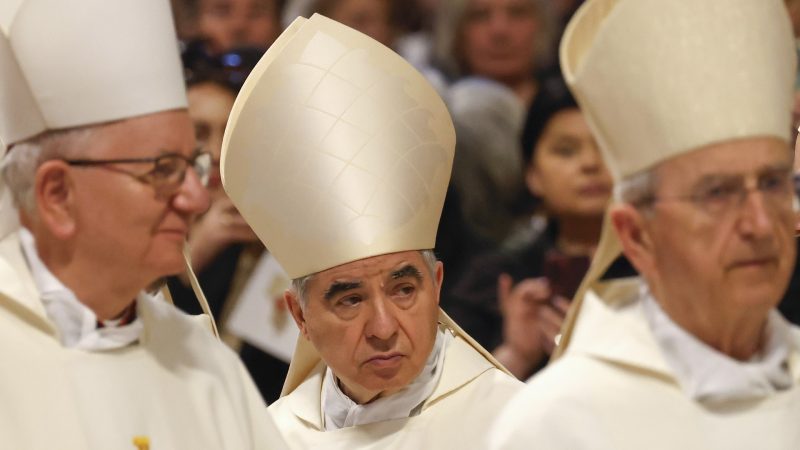
The upcoming papal conclave has been marked by a dramatic side story involving Cardinal Giovanni Angelo Becciu. Becciu, stripped of his cardinalatial rights and privileges following a conviction for embezzlement, had initially fought for the right to participate in the election of the next pope. His efforts, however, ultimately proved unsuccessful.
Becciu, once the second-highest ranking official in the Vatican, was forced to resign in 2020 after facing multiple fraud charges. Despite this, he maintained his eligibility to vote in the conclave, citing a lack of explicit exclusion from Pope Francis. This claim was met with mixed reactions from fellow cardinals, with some sources dismissing it as ‘ridiculous’.
Adding to the intrigue, reports emerged suggesting the existence of letters signed “F” by Pope Francis, explicitly barring Becciu’s participation. These reports, published by Catholic news outlets, fueled the controversy surrounding Becciu’s attempts to participate in the conclave.
The situation took a decisive turn on Monday. After days of uncertainty, the 76-year-old Becciu withdrew his claim to participate in the conclave. This decision brought an end to a significant distraction in the lead-up to the important event.
Becciu’s conviction in 2023 on charges of embezzlement, aggravated fraud, and abuse of office further complicated his case. While he awaits an appeal hearing on his five-and-a-half-year sentence, and remains in a Vatican apartment, he continues to assert his innocence, claiming to be the victim of a conspiracy.
The saga highlights the internal complexities and power dynamics within the Catholic Church. Becciu’s attempts to participate, despite his conviction, sparked debate regarding the balance between justice and the traditional processes of the papal conclave. His ultimate withdrawal, however, concludes this particular chapter in the ongoing story.










